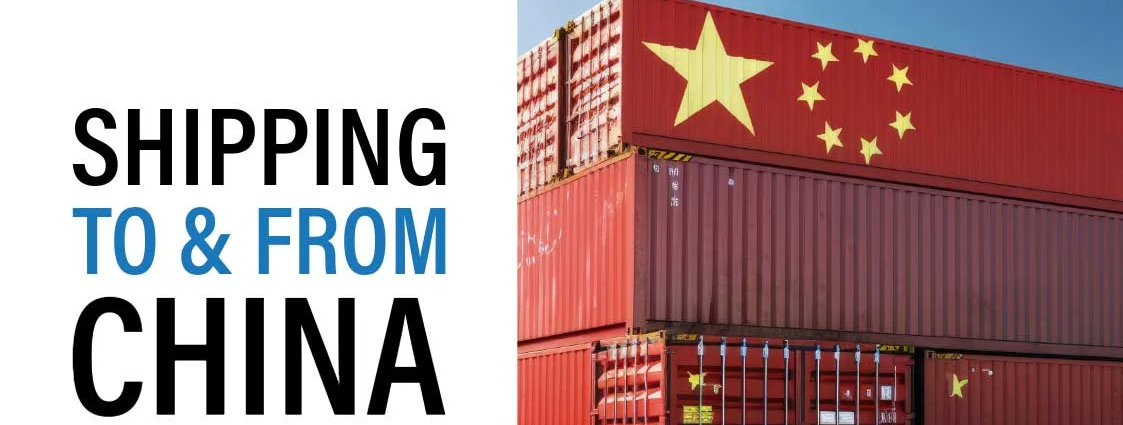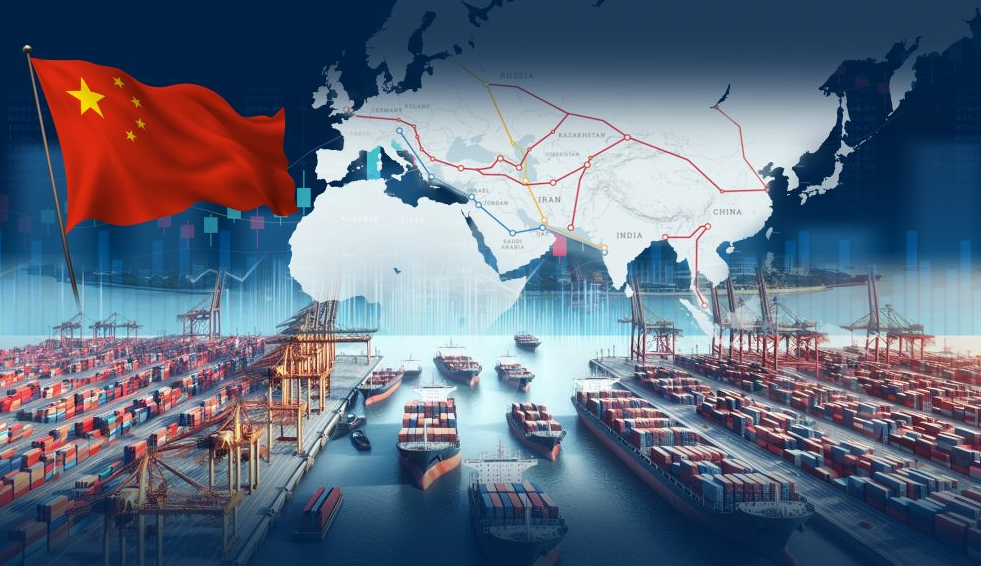Be your Logistics Department in China
Customized logistics solutions, your logistics expert in China
Customized logistics solutions, Shipping from China to the World
Tel:+8613424475220 Email:info@viputrans.com 
In today's global supply chain, China plays an increasingly important role not only as a manufacturing hub but also as a logistics transit center.
With well-established international transportation networks, free trade zones, and efficient customs systems, China is a preferred location for foreign goods in transit that are destined for re-export to a third country.
If you're a business looking to optimize your global logistics strategy, here’s a guide on how to handle goods transiting through China and efficiently ship them to a third country.

Transit goods refer to cargo that arrives in one country (in this case, China) temporarily and will be shipped out to another country without being consumed or entering the domestic market.
Although the terms "transit goods" and "re-export goods" are often used interchangeably, they refer to slightly different logistics scenarios:
*Transit goods are cargo that enters China and passes through without undergoing any major customs procedures or clearance into the domestic economy. These goods are typically stored in bonded zones and then shipped to a third country.
*Re-export goods, on the other hand, usually refer to foreign-origin goods that have been imported into China (or a bonded area) and then later exported again to another country. Re-exports may involve some processing, packaging, or repacking and are officially recorded as both an import and export, although no duties are paid if the goods remain in bonded status.
In practice, many businesses choose bonded logistics zones to handle both types of goods due to the flexibility, cost savings, and simplified customs clearance procedures.
China has several bonded logistics zones and free trade zones (FTZs) such as those in Shanghai, Shenzhen, Ningbo, and Qingdao. These areas offer businesses key advantages when managing international cargo in transit:
*No import duties or VAT are charged as long as the goods remain in the bonded zone.
*Cargo can be stored, repackaged, labeled, or consolidated before re-export.
*Transit periods can extend up to several months, depending on local policies.
By storing goods in a bonded warehouse, companies gain flexibility and save on customs-related costs, all while preparing the cargo for onward shipping to a third country.
While customs clearance is not required for cargo that remains in bonded areas, companies must still provide accurate transit declarations, bill of lading, and shipping documents to Chinese customs.
When preparing for re-export, you’ll need to:
*Ensure the cargo is properly declared as transit goods at the first port of entry in China.
*Keep all cargo details consistent across documents, especially for international tracking and insurance purposes.
*Work with a professional freight forwarder or customs broker who understands bonded procedures and transit documentation.
Once goods are ready to be shipped to a third country, China offers a variety of transportation routes and logistics services to meet different needs:
*Air freight: For urgent or high-value goods, major Chinese airports like Shanghai Pudong and Guangzhou Baiyun serve as international aviation hubs.
*Sea freight: China’s ports such as Ningbo-Zhoushan, Shanghai, and Qingdao offer direct shipping to Asia, Europe, the Americas, and the Middle East.
*Rail freight: The China-Europe Railway Express allows re-export of cargo via rail, especially to Central Asia and Europe, with lower cost compared to air and faster transit time than sea.
Each method can be tailored depending on cost, urgency, and destination.
Using China as a transit hub for international shipments offers the following benefits:
*Strategic location within Asia-Pacific trade routes.
*Access to advanced infrastructure and global shipping connections.
*Ability to consolidate cargo from multiple suppliers before shipping out.
*Streamlined customs and bonded warehouse services.
Many businesses also find value in cross-docking, where goods are unloaded from inbound containers and immediately loaded onto outbound transport with minimal or no storage.
To ensure a seamless process when handling foreign goods in transit through China, keep the following best practices in mind:
*Partner with a reliable international logistics company that has experience with bonded warehousing and third-country shipping.
*Stay updated on Chinese customs regulations and FTZ policies.
*Plan your transportation routes and schedules in advance to avoid delays or misrouting.

Anyway ,
As global trade continues to evolve, leveraging China as a strategic point for cargo transit and re-export offers businesses a competitive edge. With its extensive international transportation infrastructure, bonded zones, and expertise in global logistics, China provides a robust platform for businesses aiming to connect supply chains across continents.
If your business is looking to optimize third-country shipping and reduce logistics costs, handling goods in transit through China may be the solution you’ve been looking for.
We at VIPU SUPPLY CHAIN LOGISTICS CO.,LTD can provide you with one-stop international transportation services. ;Phone/Wechat/Whatsapp/Skype: +8618926970495
We have handled:
*India-China (transit)-KZ
*Czech Republic/Germany-China (re-export)-Russia
We welcome your inquiries at any time. Shawn.Liao (Mr.) ,E-MAIL:sales04@viputrans.com
Copyright © 2003-2026 VIPU Supply Chain Logistics Co., Ltd. | All Rights Reserved
LOGISTICS | E-COMMERCIAL FULFILLMENT | ABOUT US | CASE | NEWS | VIDEO | CONTACT US
We will find the fastest or the cheapest way for your shipment. Please specify: where from, where to, what to ship.